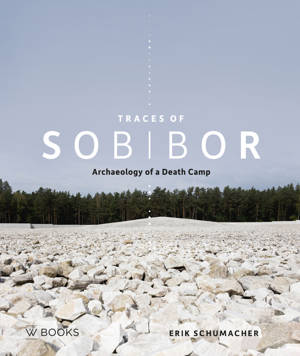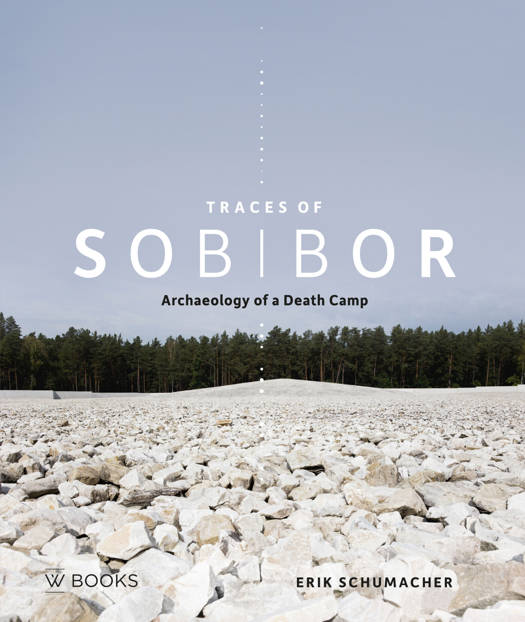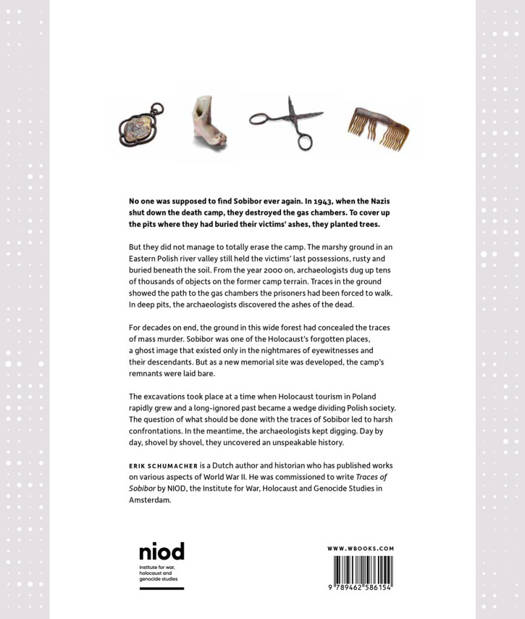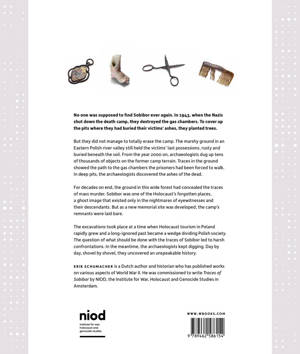
- Afhalen na 1 uur in een winkel met voorraad
- Gratis thuislevering in België vanaf € 30
- Ruim aanbod met 7 miljoen producten
- Afhalen na 1 uur in een winkel met voorraad
- Gratis thuislevering in België vanaf € 30
- Ruim aanbod met 7 miljoen producten
€ 29,95
+ 59 punten
Omschrijving
No one was supposed to find Sobibor ever again. In 1943, when the Nazis shut down the death camp, they destroyed the gas chambers. To cover up pits where they buried their victims’ ashes, they planted trees.
But their attempt to totally erase the camp failed. The marshy ground in an Eastern Polish river valley still held the victims’ last possessions, rusty and buried beneath the soil. From 2007 on, archaeologists dug up tens of thousands of objects on the former camp terrain. Traces in the ground showed the ‘road to heaven’ the prisoners had been forced to walk. In deep pits, the archaeologists discovered the ashes of the dead.
For decades on end, the ground in this wide forest had concealed the traces of mass murder. Sobibor was one of the Holocaust’s forgotten places, a ghost image that existed only in the nightmares of eyewitnesses and their descendants. But as the development of a new memorial site progressed, the camp’s remnants were laid bare.
The excavations took place at a time when Holocaust tourism in Poland took off and a long-ignored past became a wedge deeply dividing Polish society. The question of what should be done with the traces of Sobibor led to harsh confrontations. In the meantime, the archaeologists kept digging, day after day. Spade by spade, they uncovered an unspeakable history.
Erik Schumacher is an author and researcher. His works include the Jewish dual biography Mau en Gerty, and two parts of the NIOD series Leven in bezet Nederland.
But their attempt to totally erase the camp failed. The marshy ground in an Eastern Polish river valley still held the victims’ last possessions, rusty and buried beneath the soil. From 2007 on, archaeologists dug up tens of thousands of objects on the former camp terrain. Traces in the ground showed the ‘road to heaven’ the prisoners had been forced to walk. In deep pits, the archaeologists discovered the ashes of the dead.
For decades on end, the ground in this wide forest had concealed the traces of mass murder. Sobibor was one of the Holocaust’s forgotten places, a ghost image that existed only in the nightmares of eyewitnesses and their descendants. But as the development of a new memorial site progressed, the camp’s remnants were laid bare.
The excavations took place at a time when Holocaust tourism in Poland took off and a long-ignored past became a wedge deeply dividing Polish society. The question of what should be done with the traces of Sobibor led to harsh confrontations. In the meantime, the archaeologists kept digging, day after day. Spade by spade, they uncovered an unspeakable history.
Erik Schumacher is an author and researcher. His works include the Jewish dual biography Mau en Gerty, and two parts of the NIOD series Leven in bezet Nederland.
Specificaties
Betrokkenen
- Auteur(s):
- Uitgeverij:
Inhoud
- Aantal bladzijden:
- 160
- Taal:
- Engels
Eigenschappen
- Productcode (EAN):
- 9789462586154
- Verschijningsdatum:
- 1/03/2024
- Uitvoering:
- Hardcover
- Afmetingen:
- 228 mm x 269 mm
- Gewicht:
- 927 g

Alleen bij Standaard Boekhandel
+ 59 punten op je klantenkaart van Standaard Boekhandel
Beoordelingen
We publiceren alleen reviews die voldoen aan de voorwaarden voor reviews. Bekijk onze voorwaarden voor reviews.











